What Did The Latest Google Updates Bring?

Google Helpful Content Update: Quick Facts and Storm
Industry-specific SERP Daily Volatility during Updates
Expert View
Conclusion
Google September Broad Core Update: Quick Facts and Storm
Using the Serpstat Search Engine Storm tool algorithm (check infographic) we analyzed the changes in search results to determine the intensity of the update. You can see that there was an average storm rate during the update (up to 26% of the search results changed).
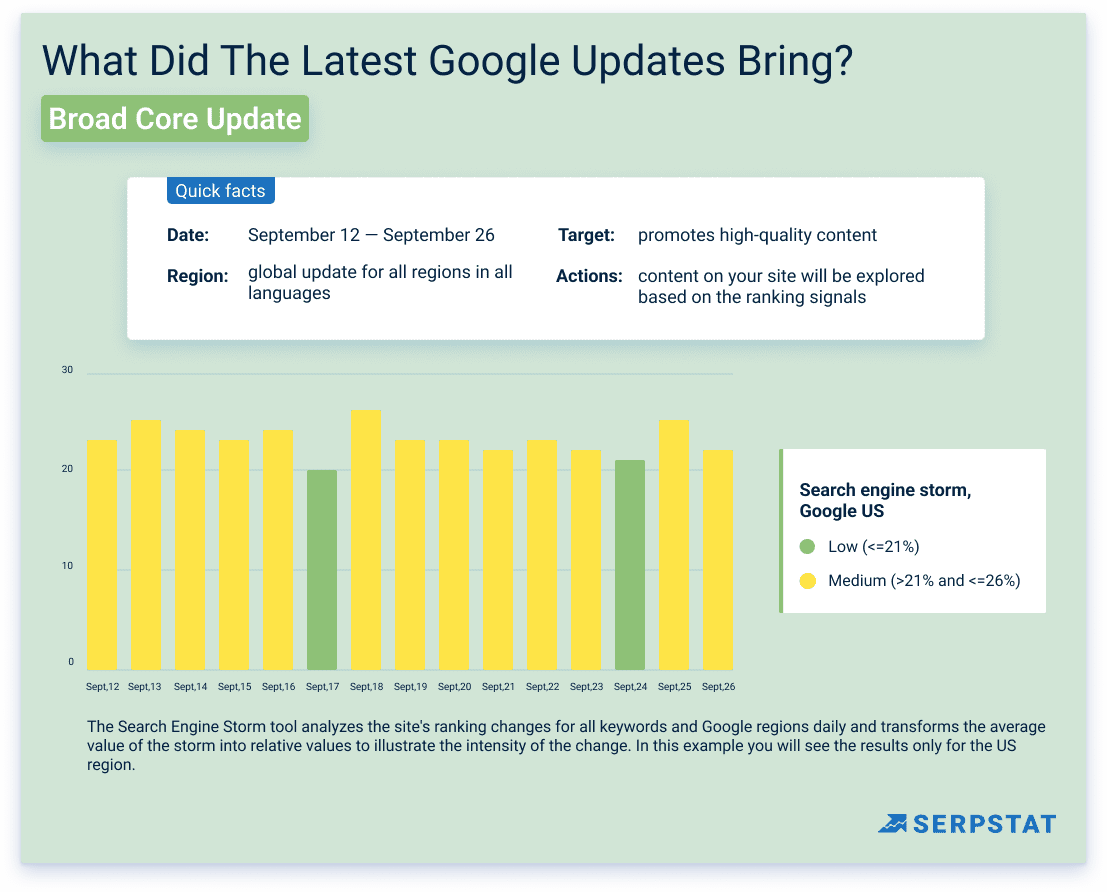
Google Helpful Content Update: Quick Facts and Storm
However, by the intensity of changes in search results, according to the Search Engine Storm tool, the HCU in the US was about the same as Google Core Update (up to 26%).
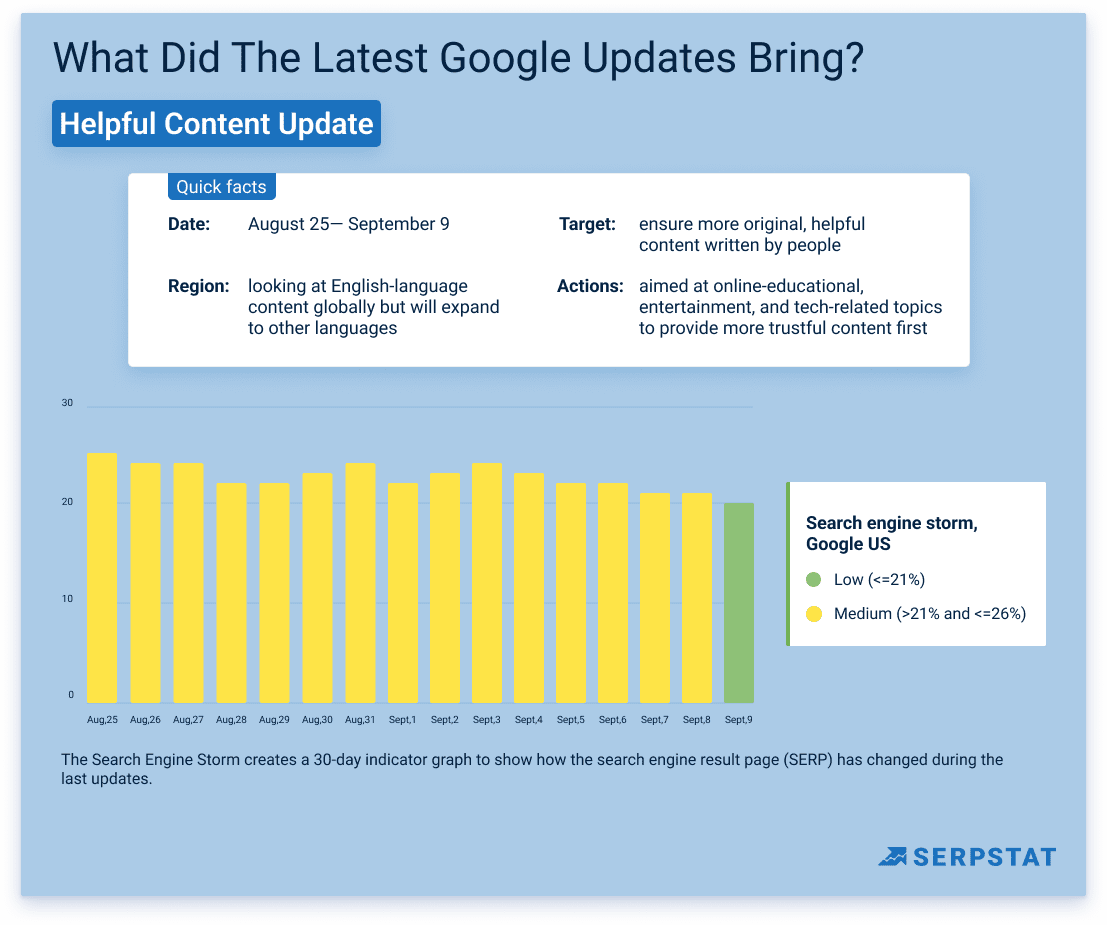
Industry-Specific SERP Daily Volatility during Updates
To study the daily changes, we checked SERP volatility, which refers to daily fluctuations (%), by analyzing website keywords ranking on Google's result page during both updates.
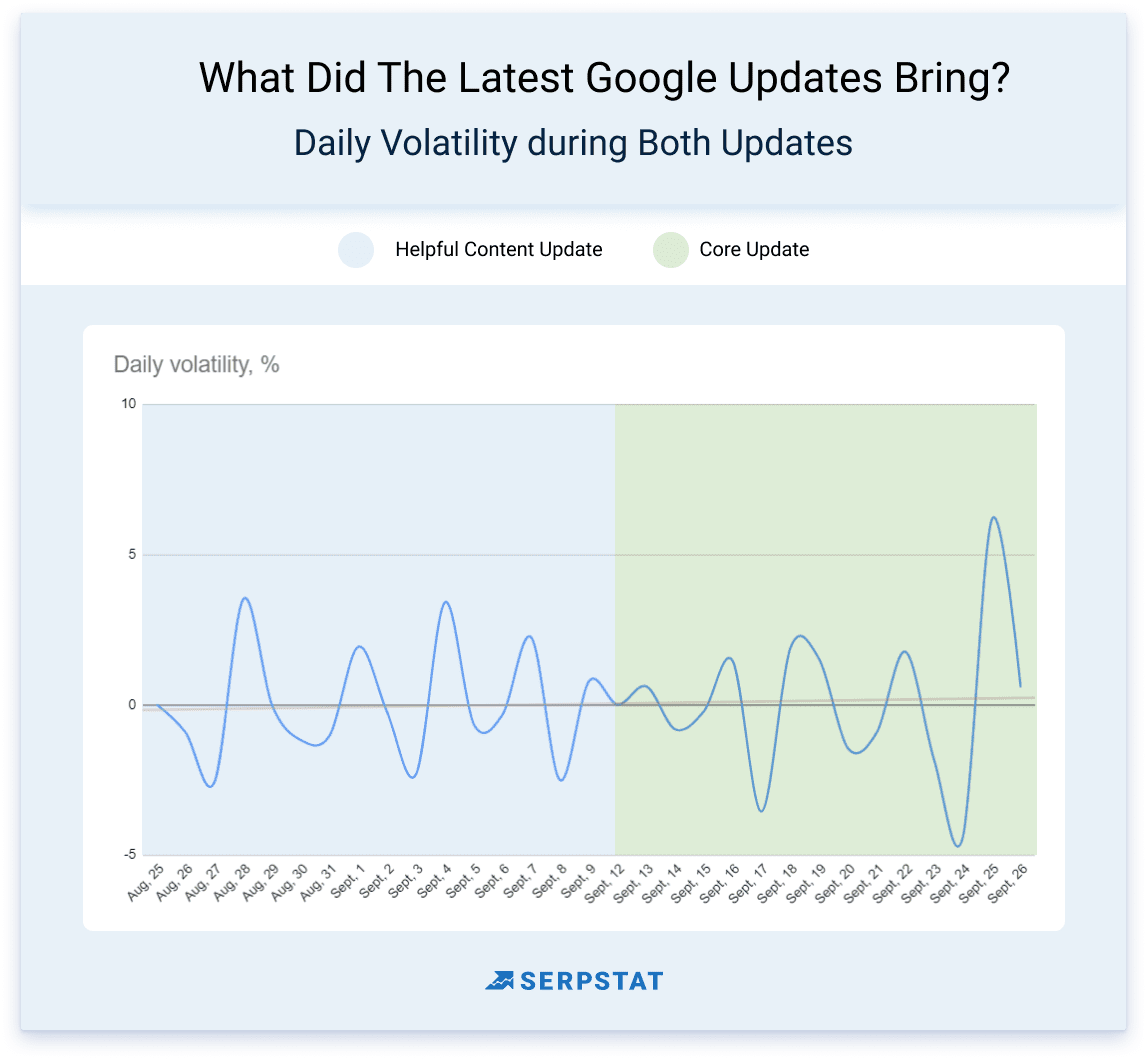
The average position of all sites from our sampling fluctuated daily, but the Core Update affected the sites more intensely only at the end of the update. Whereas the HCU had a greater amplitude throughout the entire update.
Daily volatility in September was up to 5-7%. At the same time, the SERPs during the Useful Content fluctuated by 3%.
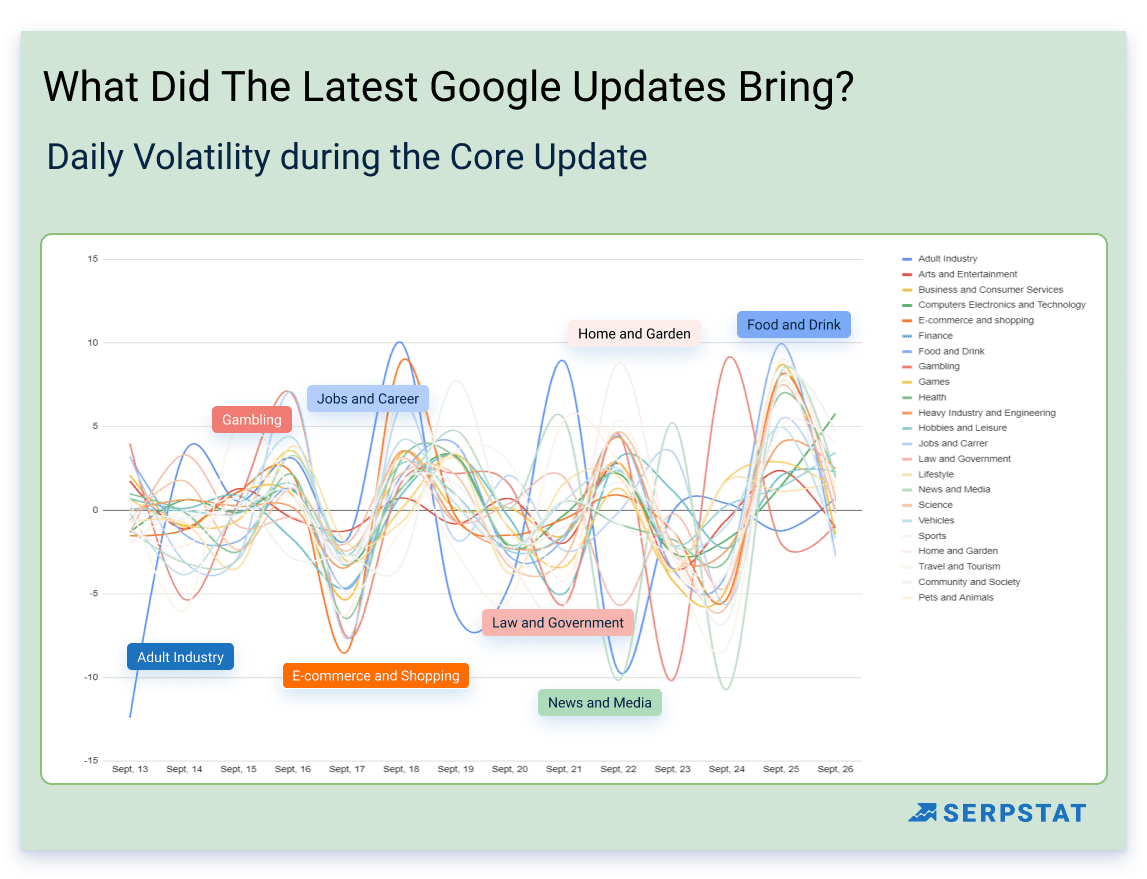
- Adult Industry
- Gambling
- Jobs and Career
- E-commerce and Shopping
- News and Media
- Home and Garden
- Food and Drink
- Law and Government
- Arts and Entertainment
- Hobby and Leisure
- Lifestyle
- Games
- Computers, Electronics, and Technologies
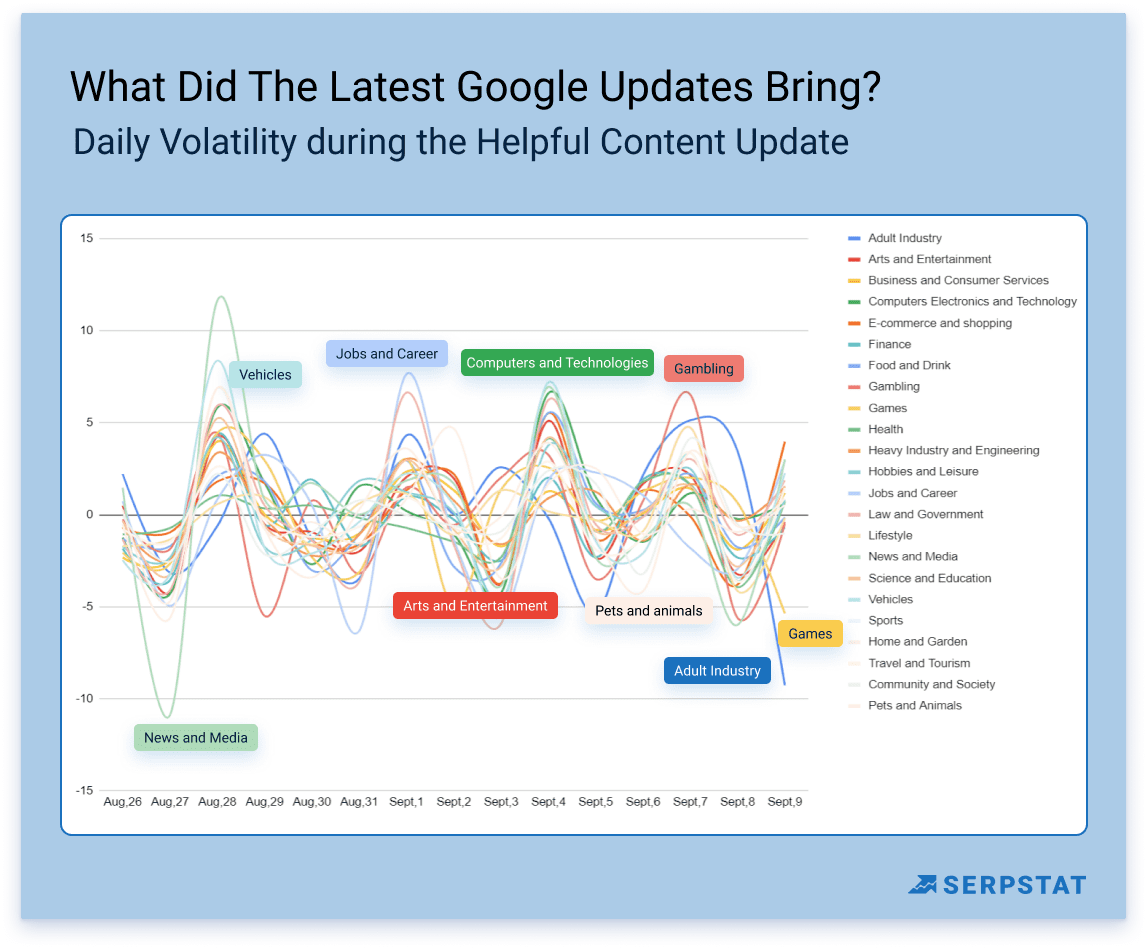
- News and Media
- Adult Industry
- Vehicles
- Gambling
- Computers, Electronics, and Technologies
- Jobs and Career
- Games
- Pets and Animals
- Arts and Entertainment
- Lifestyle
- Heavy Industries and Engineering
- Finance
- Health
AI content will continue to cause problems for Google. HCU, in my opinion, was mainly an effort to fight spammy AI content. However, I believe that Google will always be fighting against all types of bad content because it causes their customers (the searchers) to have a bad experience.
All marketers should recognize the importance of helpful content and the HCU. Things like E-A-T in the QRG and Panda before HCU are all part of Google's overall war on bad content.
These types of updates will continue. Producing bad content with the sole purpose of ranking is a fool's errand.
Unfortunately, this update is one that, in my opinion, will take time and hard work to recover from. If you were running the risk by producing bad content, it's now time to pay the piper.
And mobile usability and website speed will continue to be of great importance to SEOs. Core Web Vitals are only going to increase in importance and may have an increasing impact on the rankings of a website.
So, no, these updates are simply part of a much bigger picture. Technical SEO will continue to be important and the parameters of technical SEO work will continue to evolve.
Conclusion
It is crucial to remember the site's usefulness, relevance, and technical characteristics for the visitor, not just for the search engine. In this case, you will be able to cope with all the upcoming requirements and updates.
Speed up your search marketing growth with Serpstat!
Keyword and backlink opportunities, competitors' online strategy, daily rankings and SEO-related issues.
A pack of tools for reducing your time on SEO tasks.
Discover More SEO Tools
Backlink Cheсker
Backlinks checking for any site. Increase the power of your backlink profile
API for SEO
Search big data and get results using SEO API
Competitor Website Analytics
Complete analysis of competitors' websites for SEO and PPC
Keyword Rank Checker
Google Keyword Rankings Checker - gain valuable insights into your website's search engine rankings
Recommended posts
Cases, life hacks, researches, and useful articles
Don’t you have time to follow the news? No worries! Our editor will choose articles that will definitely help you with your work. Join our cozy community :)
By clicking the button, you agree to our privacy policy.

